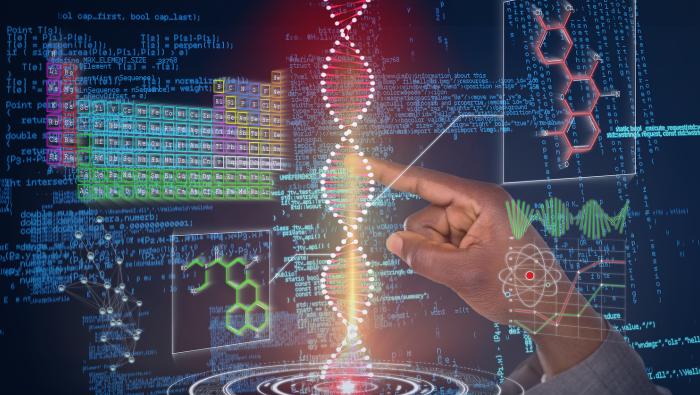Computational biology

Computational biology is a young multidisciplinary field that combines computer science with statistics, physics, chemistry, and biology in order to analyze and understand complex biological systems – from single molecules to entire organisms and populations.
Computational Biology: The Essential Foundation of Personalized Medicine
Computational biology tools have become a significant part of ongoing biological research. For scientists from various disciplines, these tools allow for the study of biological phenomena that have been unknown until now. One of these disciplines is personalized medicine, which uses computational biology tools and techniques extensively in order to analyze the unique genetic structure of each patient and cross-reference such information with other medical data.
For example, computational biology tools help identify genetic mutations that may contribute to the development of diseases, and facilitate the design of personalized treatment strategies based on each individual's unique data. This approach has the potential to change the way we diagnose and treat different diseases – from cancer and heart diseases to rare genetic disorders.
In recent years, computational biology has made considerable progress in a wide range of research fields – from genetics and proteomics (the research of proteins) to systems biology and neuroscience. Artificial intelligence and machine learning tools have also been used in recent years to support research aimed at discovering and developing drugs and advanced imaging systems, helping scientists make significant discoveries and gain new insights regarding complex biological systems.
At the Dangoor Center for Personalized Medicine at Bar-Ilan University, some of the leading researchers, doctors and computational biology scientists in Israel and around the world participate in groundbreaking research in the field of personalized medicine.
Computational Biology in the Field of Genetics and Microorganisms
Technological advances in the field of genetic sequencing and the vast amount of information gained from genome mapping projects can contribute to the early detection of diseases and allow the prediction of disease trajectory, as well as the personalization of medical treatment based on each individual's unique genomic information.
Today's advanced technologies make it possible to map not only the genome of man, but also that of different organisms, such as bacteria, fungi or viruses – whether they cause diseases or exist in symbiosis with man. Understanding the processes that occur in these microbe populations, either in general or based on each individual’s genetic profile, has placed our researchers at the forefront of global scientific progress and led to several significant breakthroughs contributing to physical and mental health.
Computational Biology in the Field of Immune System Research
Our laboratories are engaged in the design of computational and statistical tools intended to systematically process and analyze biological data related to the immune system. Our studies reveal how a healthy immune system functions, as well as how bodies respond to various challenges such as infectious diseases, autoimmune diseases, aging and cancer.
Using these tools, our researchers uncover previously unknown biological mechanisms and processes and gain insights that can be used in the future to develop lifesaving drugs and improve patients’ quality of life.
Computational Biology in the Field of Disease and Pharmaceutical Research
Our research also focuses on molecular aspects that characterize various diseases in humans, and traces how viruses, bacteria and parasites behave in the body. By combining structural, biophysical and biomechanical approaches with cell biology research, our scientists uncover the workings of protein structures and their interactions, thereby facilitating the introduction of new drugs for infectious diseases.
In addition, computational biology contributes to the study of factors that influence interactions between biological systems and pharmaceutical substances, and helps predict the pharmacological profile of active substances in order to develop improved drugs.




